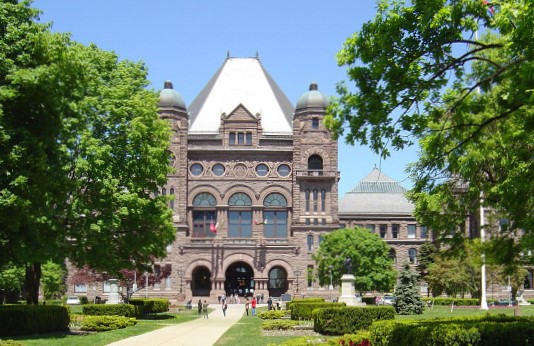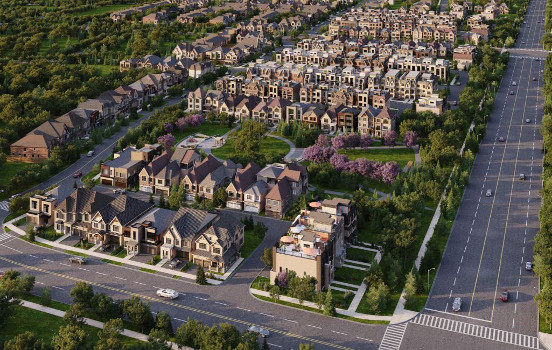The Government of Canada has passed the Prohibition on the Purchase of Residential Property by Non-Canadians Act that prevents non-Canadians and corporations controlled by non-Canadians from purchasing residential property in Canada for 2 years starting on January 1, 2023.
The Canadian government has extended the Prohibition on the Purchase of Residential Property by Non-Canadians Act until January 1st, 2027.
In developing the accompanying regulations, the Government reached out to Canadians for their feedback. A detailed consultation document containing specific policy proposals intended for the regulations was available for comment for 4 weeks in August and September 2022. The consultation process received approximately 200 written submissions from individuals and stakeholders.
The Regulations will also come into force on January 1, 2023. The Act and its regulations will be repealed after 2 years.
For more details, read the Regulations in the Canada Gazette.
Key Highlights
- The Prohibition on the Purchase of Residential Property by Non-Canadians Act prevents non-Canadians from buying residential property in Canada for 2 years starting on January 1, 2023.
- The Act defines residential property as buildings with 3 homes or less, as well as parts of buildings like a semi-detached house or a condominium unit. The law does not prohibit the purchase of larger buildings with multiple units.
- The Act has a $10,000 fine for any non-Canadian or anyone who knowingly assists a non-Canadian and is convicted of violating the Act. If a court finds that a non-Canadian has done this, they may order the sale of the house.
- Please note: This does not apply to non-Canadians who are looking to rent.
Exceptions
The Regulations provide exceptions to the following people.
Temporary residents studying in Canada, if they:
- are enrolled in a program of authorized study at a designated learning institution as defined in the Immigration and Refugee Protection Regulations, and
- have filed income tax returns for each of the 5 taxation years preceding the year in which the purchase was made, and
- have been physically present in Canada for a minimum of 244 days in each of the 5 calendar years preceding the year in which the purchase was made, and
- have not previously purchased a residential property in Canada while the prohibition is in effect, and
- purchase a property for a price not exceeding $500,000
Temporary residents working in Canada, if they:
- hold a valid work permit or are authorized to work in Canada, and
- have 183 days or more of validity remaining on their work permit or work authorization at time of purchase, and
- have not previously purchased a residential property in Canada while the prohibition is in effect
Refugees, if they:
- have been given refugee protection or are a protected person under the Immigration and Refugee Protection Act, 2001
Refugee claimants and individuals fleeing international crises, if they:
- have made a claim for refugee protection in accordance with the Immigration and Refugee Protection Act, if that claim has been found eligible and referred to the Refugee Protection Division; or
- have received temporary resident status in accordance with the Immigration and Refugee Protection Act based on humanitarian public policy considerations to provide a haven to those fleeing conflict
Accredited members of foreign missions in Canada, if they:
- hold a passport that has a valid diplomatic, consular, official, or special representative acceptance issued by the Chief of Protocol of Canada
Non-Canadians spouses and common-law partners, if they:
- purchase residential property in Canada with their spouse or common-law partner who is a Canadian citizen, a person registered under the Indian Act, a permanent resident or a non-Canadian for whom the prohibition does not apply.
Section 35 Rights – Indigenous People and Communities
The Regulations clarify that the prohibition doesn’t apply if it conflicts with the rights recognized and affirmed by Section 35 of the Constitution Act, 1982.
Section 35 recognizes and affirms the existing Indigenous and treaty rights of Indigenous peoples of Canada. These may include ownership rights to land, rights to occupy and use lands and resources, land to be set aside for First Nation use only, self-government rights and cultural and social rights.
Exceptions for certain types of property
The Regulations include an exception for any residential property found outside of a Census Metropolitan Area or Census Agglomeration as identified in Statistics Canada’s Standard Geographical Classification 2021.
Both Census Metropolitan Areas and Census Agglomerations are formed by 1 or more adjacent municipalities centered on a population centre, or the core.
A Census Metropolitan Area must have a total population of at least 100,000 of which 50,000 or more must live in the core and a Census Agglomeration must have a core population of at least 10,000.
Whether a residential property is located within a Census Metropolitan Area or a Census Agglomeration can be determined by accessing the Standard Geographical Classification (SGC) reference maps. More detailed maps of CMAs and certain CAs are also available by accessing Statistics Canada’s Census Tract reference maps.
*The information contained on this site is for general guidance only and is not to be construed as legal or other professional advice. It should not be used as a substitute for consultation with legal or other competent advisers. Before making any decision or taking any action, you should consult a professional.
*With regard to the intellectual property rights of others, individuals who have a belief that their work has been replicated in a manner that constitutes copyright infringement may contact us.





